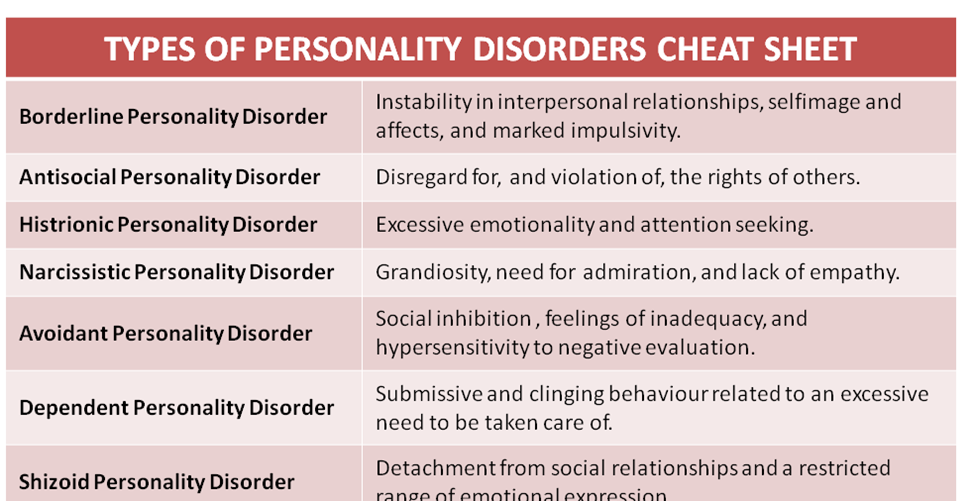A charge nurse is instructing a newly licensed nurse about mental health disorders. Which of the following statements by the nurse indicates an understanding of mental health disorders?
"Mental health disorders are broken down by their manifestations."
"Treatments for mental health disorders always allow clients to return to full functioning."
Mental health disorders are preventable"
Mental health disorders are primarily caused by biological factors."
The Correct Answer is A
Nursing Test Bank
Naxlex Comprehensive Predictor Exams
Related Questions
Correct Answer is D
Explanation
A. Histrionic Personality Disorder:
Individuals with histrionic personality disorder typically seek attention and may be overly dramatic, but self-harm as a response to perceived abandonment is not a characteristic feature.
B. Obsessive-Compulsive Personality Disorder (OCPD):
People with obsessive-compulsive personality disorder are characterized by perfectionism, preoccupation with details, and a desire for control. Michelle's behavior, including self-harm in response to perceived rejection, aligns more closely with borderline personality disorder.
C. Narcissistic Personality Disorder:
While narcissistic individuals may exhibit a sense of superiority and a desire for admiration, self-harm in response to abandonment is not a typical trait of narcissistic personality disorder.
D. Borderline Personality Disorder (BPD):
This personality disorder is characterized by unstable relationships, self-image, and emotions. Individuals with BPD may have intense fears of abandonment and engage in impulsive and self-destructive behaviors. Michelle's perception of being disliked, her claim of superiority, and the self-harming action in response to news of the nurse's vacation are consistent with BPD.

Correct Answer is B
Explanation
A. Hypotensive shock: This is not the correct answer. MAO inhibitors are not associated with causing hypotensive shock. In fact, they can lead to an increase in blood pressure.
B. Hypertensive crisis: This is the correct answer. MAO inhibitors interact with certain foods and drugs, such as those containing tyramine, leading to an increased risk of a hypertensive crisis. Foods rich in tyramine, such as aged cheeses, certain wines, and some processed meats, can cause a sudden and dangerous increase in blood pressure when combined with MAO inhibitors.
C. Cardiac dysrhythmia: While all medications have potential side effects, MAO inhibitors are not typically associated with causing cardiac dysrhythmias.
D. Cardiogenic shock: MAO inhibitors are not known to cause cardiogenic shock. The primary concern with MAO inhibitors is the potential for a hypertensive crisis due to interactions with specific foods and drugs.
Whether you are a student looking to ace your exams or a practicing nurse seeking to enhance your expertise , our nursing education contents will empower you with the confidence and competence to make a difference in the lives of patients and become a respected leader in the healthcare field.
Visit Naxlex, invest in your future and unlock endless possibilities with our unparalleled nursing education contents today
Report Wrong Answer on the Current Question
Do you disagree with the answer? If yes, what is your expected answer? Explain.
Kindly be descriptive with the issue you are facing.
